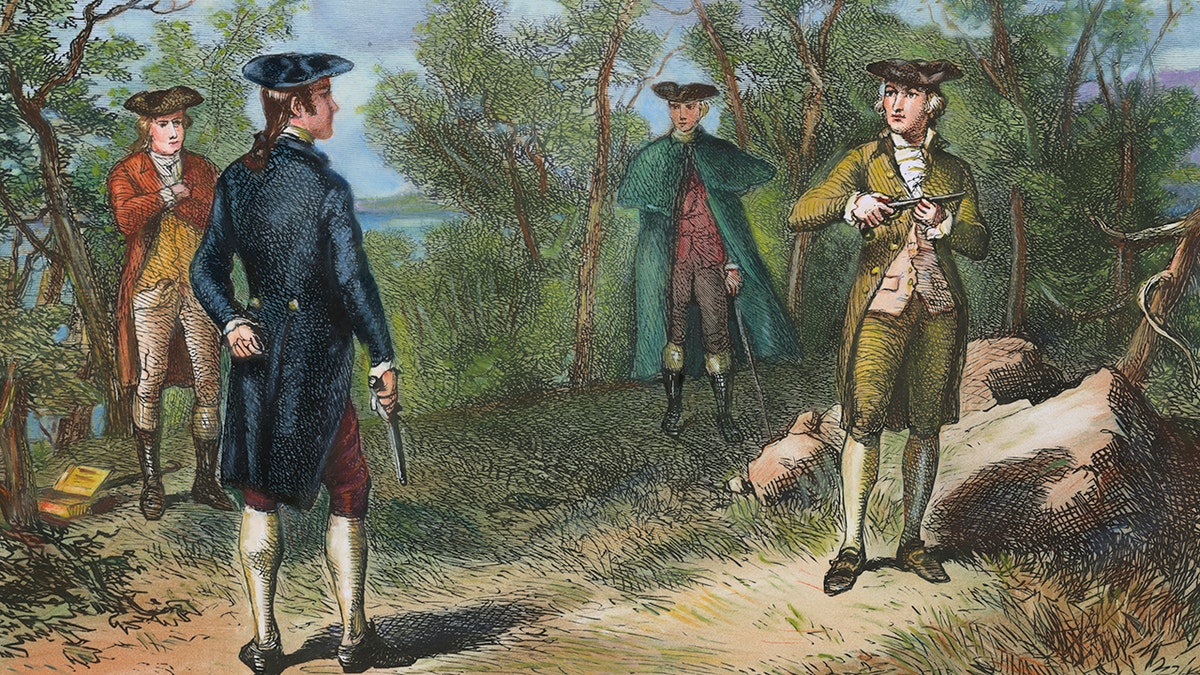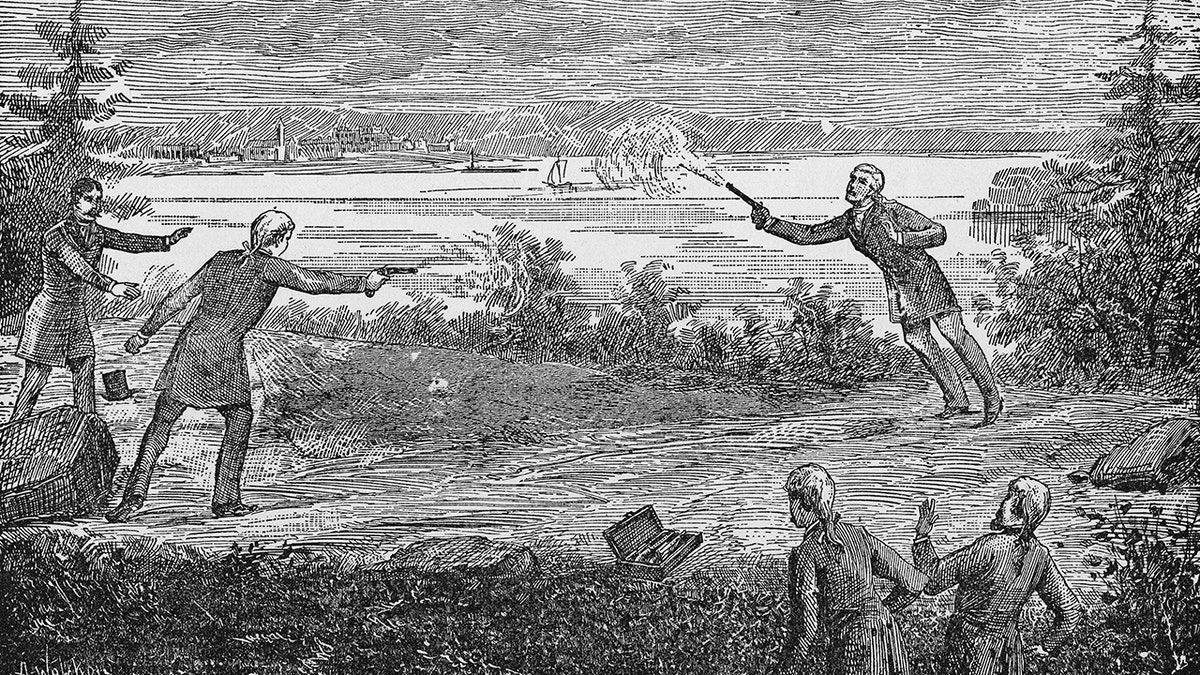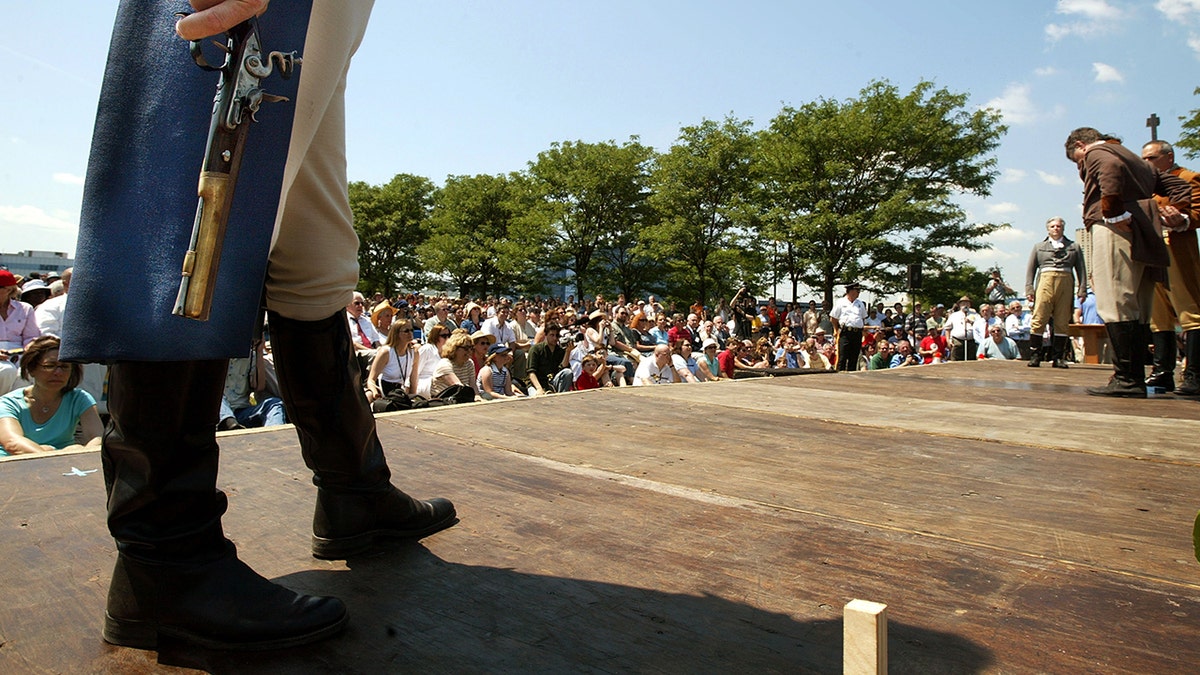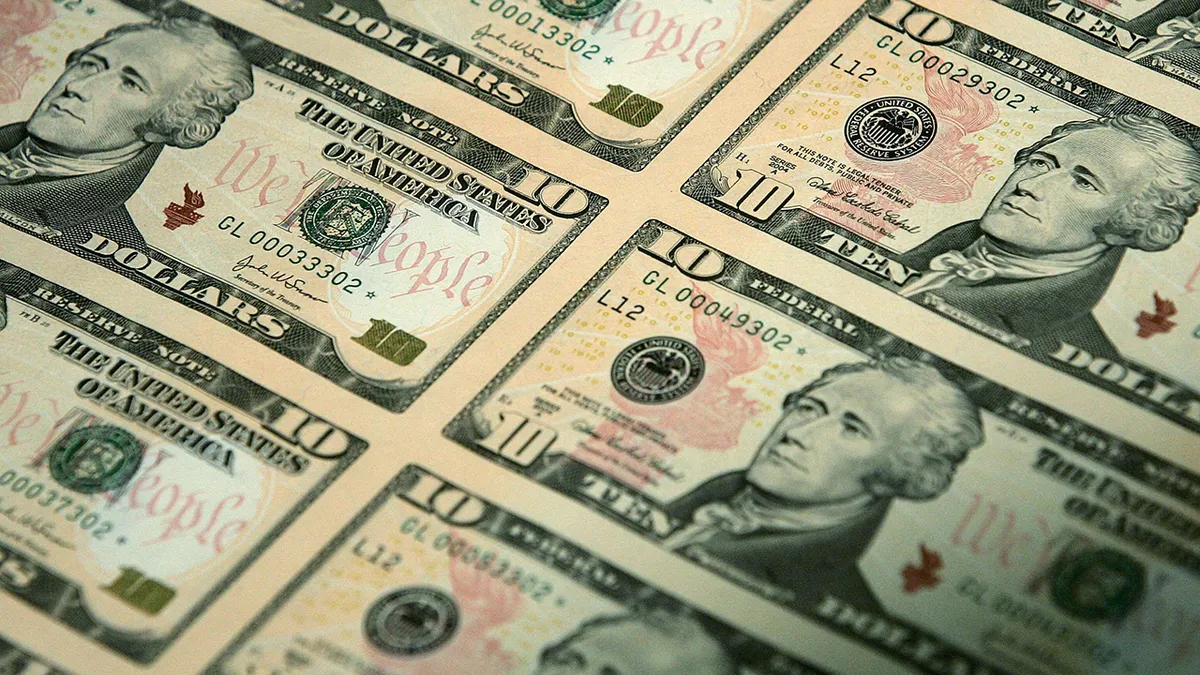On July 11, 1804, a fateful duel between two prominent figures in American history unfolded in Weehawken, New Jersey. Alexander Hamilton, the nation's first Secretary of the Treasury, faced off against then-Vice President Aaron Burr, culminating a long-standing political rivalry. This clash resulted in Hamilton's tragic death, leaving a lasting impact on the nation.
Burr's challenge to Hamilton stemmed from years of political animosity. The details leading up to the duel are well documented, with Burr explicitly stating his intentions in a letter to Hamilton, essentially forcing his hand.

Ironically, the location of the duel, Weehawken, was the same spot where Hamilton's son, Philip, had perished in a duel three years prior. With Nathaniel Pendleton and William Van Ness serving as their respective seconds, Hamilton and Burr met on the fateful morning. The role of the seconds was crucial, responsible for loading the pistols and ensuring adherence to the dueling protocol.
The exact sequence of events remains shrouded in mystery. Those present intentionally turned away, aiming to avoid legal repercussions. Conflicting accounts exist, but two shots rang out in quick succession. Hamilton's shot missed its mark, while Burr's tragically struck Hamilton in the abdomen. Pre-duel writings by Hamilton suggest he intended to intentionally miss, a claim seemingly corroborated by his second. However, he never had the opportunity to fire his second shot.

Mortally wounded, Hamilton was transported back to Manhattan, where he succumbed to his injuries the following day, July 12, 1804, at the age of 47. The nation mourned the loss of a Founding Father, and Burr, though charged with murder, completed his vice presidential term shielded from prosecution.

Hamilton's image graced the $1,000 bill in 1918 and later the $10 bill in 1928. A 2015 proposal to replace Hamilton's image on the $10 bill with that of Harriet Tubman was later rescinded, with Tubman ultimately chosen for the $20 bill instead. The popularity of the 2015 Broadway musical "Hamilton" may have contributed to this reversal, though never officially confirmed.


The legacy of Alexander Hamilton continues to resonate, his contributions to the nation's founding and financial system enduring through history, and even finding renewed interest in modern popular culture.
Comments(0)
Top Comments